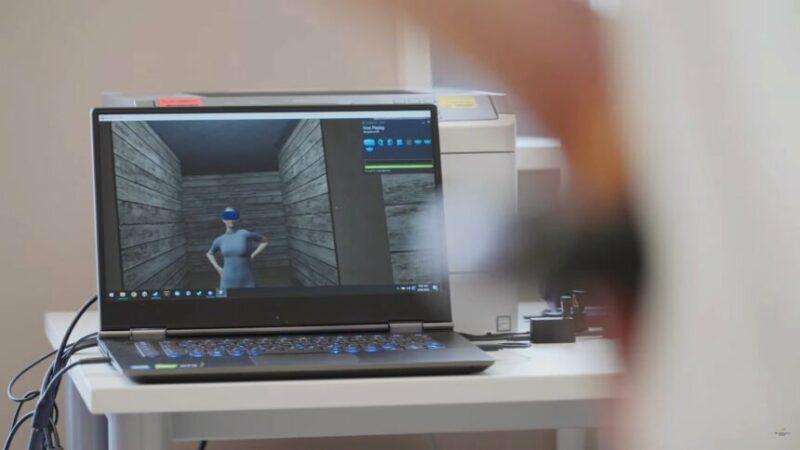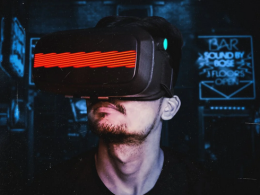What do I look like when I am at a healthy weight? This is the experience anorexics should have with VR. Scientists at the University of Tübingen have co-developed a VR application for this purpose.
The everyday life of people with anorexia is characterised by the fear of gaining weight and the measures to prevent gaining weight. Accordingly, it is difficult for those affected to achieve the medically urgently advised weight gain. Scientists from the Department of Psychosomatic Medicine and Psychotherapy at the University Hospital of Tübingen and the Max Planck Institute for Intelligent Systems have now developed a virtual reality tool with which those affected can face the dreaded scenario. The first study results were recently published in the renowned journal Psychotherapy and Psychosomatics. They indicate that the repeated virtual representation with a healthy body weight helps people with anorexia to reduce their fear of gaining weight.
The glasses show a virtual image of the patient's body. However, it is the image of the body of a person who has a healthy weight. Those affected should thus be able to face the dreaded scenario of weight gain, according to a press release from the university hospital.
Study by the University of Tübingen: Virtual representation helps with recovery
The virtual reality environment that has now been developed enables anorexics to try out how they might feel with a healthy body weight early on in the treatment process. The patients see themselves in a mirror image from a first-person perspective. They can try out any weight they like. The virtual reality environment enables therapeutic work with and on a literally extended reality, and thus breaks through the boundaries of "classical" body therapy," emphasises Prof. Katrin Giel, who heads the Translational Psychotherapy Research Group.
For the study Simone Behrens and her team studied 24 patients with anorexia who were in inpatient or outpatient treatment. Most of them reacted tensely at first. Almost all of the patients reported that they had found the virtual representation very helpful for their personal recovery, according to project leader Behrens. The working group would now like to build on these results and in the next step examine mechanisms during virtual body exposure in more detail.$
Source: Media release









